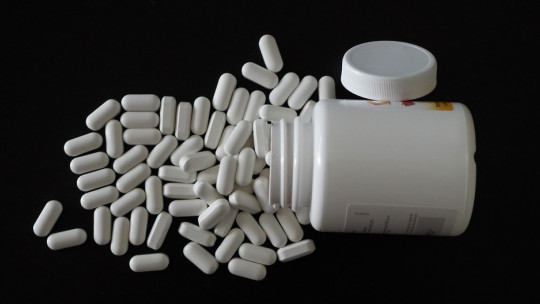
OCD is seen, on many occasions, more as a peculiarity than as what it really is, a psychological disorder, and like any disorder, it involves interference in the life of the person who suffers from it.
That is why people with this disorder must receive treatment, whether in the form of psychotherapy or psychotropic drugs, so that they can have a significant improvement in their quality of life.
In this article we will see the main medications for OCD their adverse effects, their precautions and the mechanisms that explain why they are beneficial for people diagnosed with the disorder.
What is Obsessive-Compulsive Disorder?
Obsessive-Compulsive Disorder (OCD) is the fourth most common disorder, only behind phobias, addictions and depression. The first symptoms of this psychological problem appear already in childhood, getting worse as the individual grows. Among the most notable behaviors of patients with this disorder we find rituals, perfectionism and manias, behaviors which appear in times of special stress
Although the severity of the disorder is very variable, depending on the type of behaviors that the patient manifests, as a general rule it usually involves a high degree of interference in their life. Despite this, few people seek professional help, estimating that only between 35% and 40% of OCD sufferers attend therapy of their own volition
Given that OCD has its roots in aspects of the personality of the individual who suffers from it, we cannot speak of a treatment that will completely ‘cure’ it. That is why, in most cases, therapy is aimed at helping the patient gain control over their obsessions and compulsions, rather than eliminating them completely. For this reason, patients with the disorder will have to undergo lifelong therapy, in most cases.
The two main avenues of treatment for OCD, which have scientific evidence behind them, are psychotherapy, especially cognitive-behavioral therapy (CBT), and medications Alternative treatments such as homeopathy, herbal medicine, meditation, exercise or Mindfulness, today, lack adequate scientific evidence to demonstrate a significant improvement in the patient’s life, although this does not mean that these latter treatments do not may be potentially therapeutic.
Medications for OCD
There are several medications for OCD, although their use varies depending on the characteristics of the person, the severity of their obsessions and compulsions, how effective previous treatments have been, and the appearance of adverse effects.
Antidepressants
Usually, the first treatment option is the use of antidepressants. The name of this group of drugs may lead one to mistakenly think that they are only prescribed for depression, but the truth is that contribute to having a euthymic mood, that is, not pathological Since OCD is an anxiety disorder, and antidepressants are also used for these types of disorders, it is not surprising that they have use for this specific disorder.
antidepressants They are drugs that help regulate, especially serotonin levels a neurotransmitter, in the synaptic cleft, preventing it from being reuptaken and taken into the neuron.
Among the most specialized in this function we find Selective Serotonin Reuptake Inhibitors, whose action falls exclusively on the reuptake of this neurotransmitter. These drugs include fluoxetine (Prozac), fluvoxamine, paroxetine (Paxil, Pexeva), escitalopram (Lexapro), citalopram (Celexa) and sertraline (Zoloft).
In the case of children who have been diagnosed with OCD the two antidepressant drugs that are usually prescribed are sertraline, for those over 6 years of age, and fluvoxamine, for those over 8.
Other antidepressants used for OCD are Serotonin and Noradrenaline Reuptake Inhibitors, drugs that, in addition to acting on the serotonin collection mechanisms, intervene in other neurotransmitters, in this case, norepinephrine. Among the drugs within this group we find venlafaxine and mirtazapine, and they are used when, once the SSRIs have been prescribed, they have not been effective for the patient or, in addition to OCD, they also present depression.
Also of importance is a tricyclic antidepressant used for OCD: clomipramine (Anafranil).
Between the precautions of antidepressants, whether SSRIs or SNRIs we found that they should not be prescribed for pregnant or breastfeeding women, elderly people, or those who suffer from heart problems.
It should be said that, although most antidepressants are safe, there is a risk that they will encourage the appearance of suicidal thoughts and self-harm attempts It has been seen that children and adolescents who have been prescribed these drugs may have an increase in suicidal ideation, especially during the first weeks of treatment or when the dose of the medication has been modified. However, these adverse effects are temporary, with significant improvement in the long term.
Although antidepressants are not considered addictive, it is possible that there may be some physical dependence on them This dependence is different from what is understood as addiction, but it does require that the interruption of treatment be done in a scheduled manner, progressively reducing the doses instead of stopping treatment suddenly. If you do so, it is possible that the person will manifest withdrawal symptoms, which is known as discontinuation syndrome.
Antipsychotics
Another group of drugs used to medically treat OCD are antipsychotics. These medications are not used separately, but in combination with SSRIs since they improve its therapeutic effects, significantly reducing the symptoms of the disorder.
Among the most used are risperidone (Risperdal), haloperidol (Haldol), olanzapine (Zyprexa), quetiapine (Seroquel) and aripiprazole (Abilify).
Other drugs
Currently, research is being done on the use of several alternative drugs, especially those that intervene in brain glutamatergic pathways. The most studied are memantine (Namenda), topiramate (Topamax) and riluzole (Rilutek)








